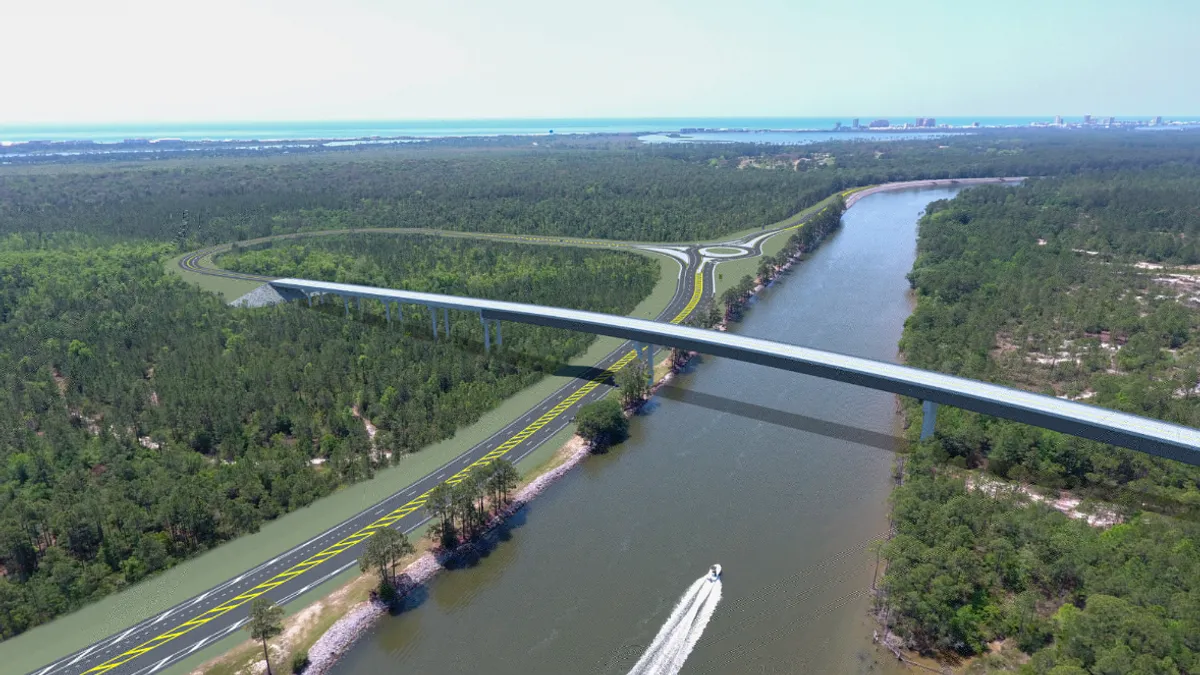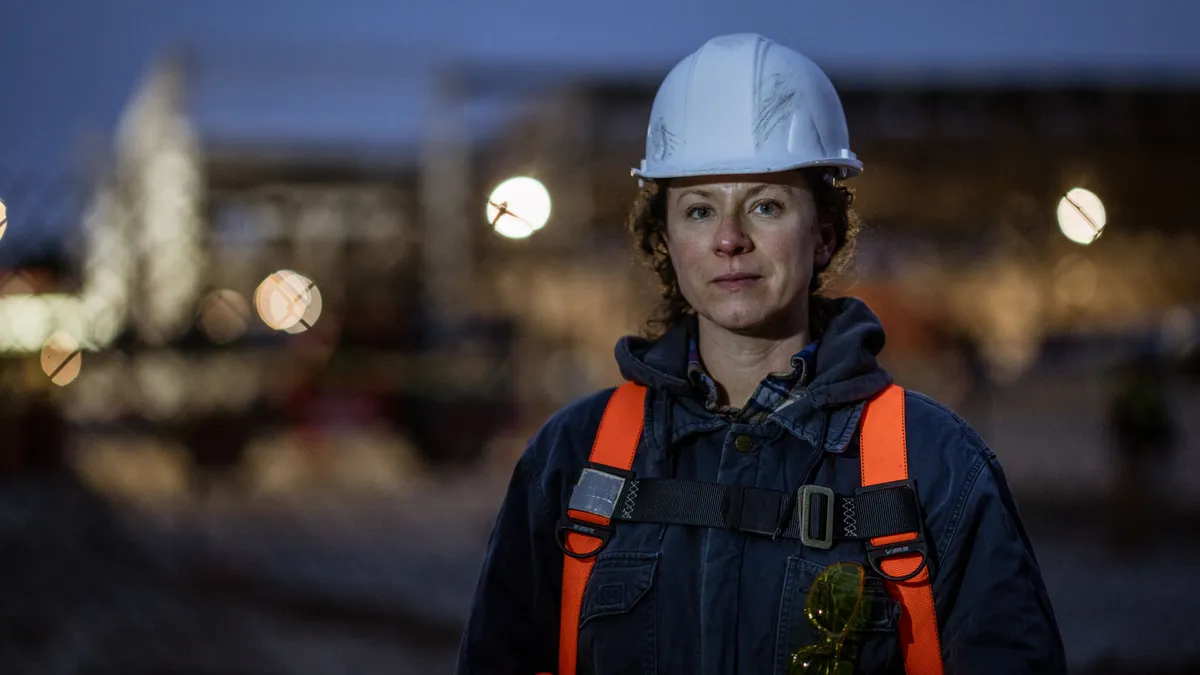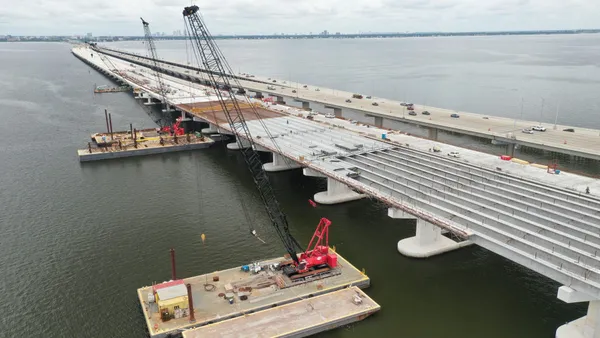Dive Brief:
- An Alabama judge halted construction on a $120 million bridge commissioned by the state’s DOT last month after a company that owns a nearby toll bridge argued the project would put it out of business and waste taxpayer money. The Alabama DOT claimed the span in Orange Beach over the Intracoastal Waterway is needed to alleviate traffic and provide a new evacuation route.
- In the preliminary injunction, Montgomery County Circuit Court Judge Jimmy Pool agreed with the Baldwin County Bridge Co. that Alabama DOT Director John Cooper had “acted in bad faith” when deciding to build the free span 1 mile from its Beach Express toll bridge. Pool wrote that the main purpose of the project was “to carry out the personal vendetta of Director Cooper” and “either force the company out of business altogether or allow it to be purchased for close to nothing.”
- Alabama DOT spokesperson Tony Harris said the agency plans to appeal the ruling in the state Supreme Court, according to AP News. Opelika, Alabama-based Scott Bridge Co., the project contractor, has already begun work on the new bridge.
Dive Insight:
BCBC built the Beach Express bridge with private funds over two decades ago, and in exchange it is allowed to collect tolls in perpetuity. Its attorneys argued that prior to the new bridge being built, BCBC attempted to negotiate with Alabama DOT with no success, offering to build a second and even third bridge at no cost to the state and to add more toll plazas at its existing bridge, among other suggestions.
“Even though Director Cooper’s own expert admitted that BCBC’s proposal would improve traffic on the Highway 59 Bridge and even though it would save the taxpayers of Alabama $120 million that could be used on other pressing infrastructure projects throughout the state of Alabama, Director Cooper did not even consider BCBC’s August 2022 proposal,” Pool wrote in the injunction.
Pool also wrote that, “Director Cooper ordered his staff at ALDOT to build the Cooper Bridge without conducting a single public meeting on the project or conducting a single traffic study showing whether there was any legitimate need for it,” and “openly and brazenly admitted that he personally dislikes the fact that BCBC has contractual rights.”
However, the Alabama DOT said it has attempted to negotiate with BCBC and plans to keep fighting for the project.
“We are disappointed in the decision because it's clear that a new, free bridge is needed to help alleviate traffic congestion and offer a new evacuation option to residents and visitors to Alabama's Gulf Coast," Harris told AP News. “Years of negotiations with the private toll bridge company failed to deliver a solution. The public benefit of a new, free bridge should outweigh the interests of the private toll bridge company.”
Gordie Howe Bridge lawsuit
This is not the first time a private bridge owner has filed a lawsuit to stop a competing public bridge from being built nearby. The owner of the 94-year-old Ambassador Bridge between Detroit and Windsor, Ontario, sued multiple times for more than a decade in an attempt to block the rival Gordie Howe International Bridge from being built.
Owner Manuel “Matty” Moroun argued he had a “perpetual and exclusive franchise right" to operate the crossing — the busiest on the Canada-U.S. border — free of competition from another span. He also said that a free public bridge nearby would ruin his business.
Unlike in Alabama however, the courts have been knocking down each challenge. Although the project has been delayed by the suits, the pandemic and other issues, progress continues and work is likely to be finished by 2025.















